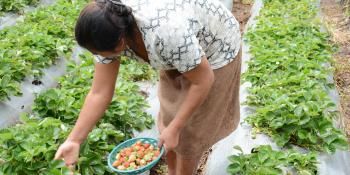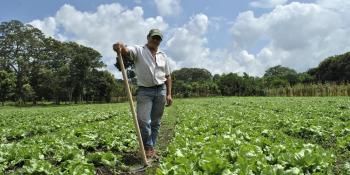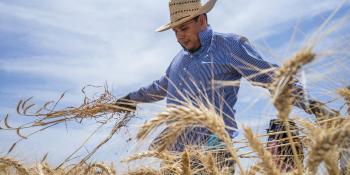CSV Cauca quantifies its emissions with Cool Farm Tool
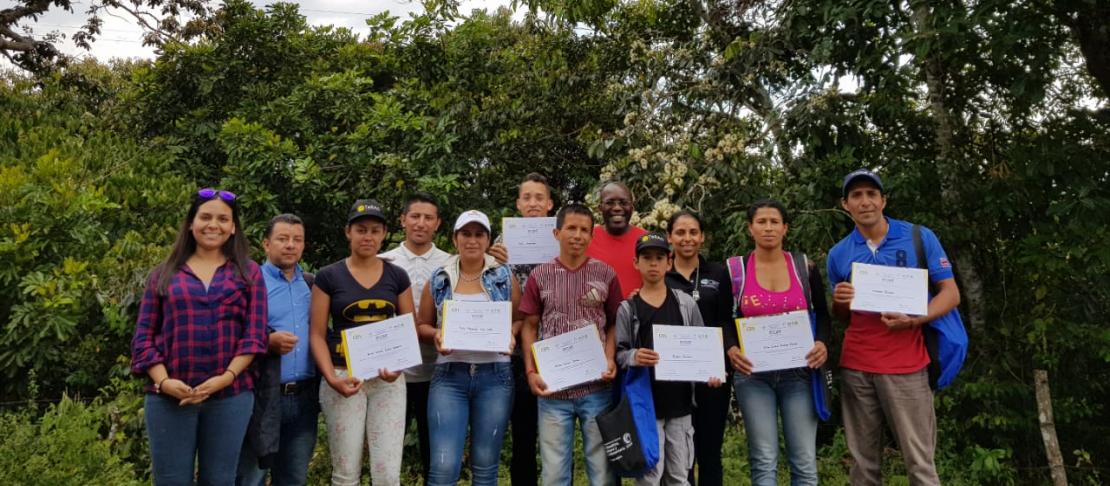
Cool Farm Tool allowed farmers to measure the environmental impact of the coffee production system.
The first training course on quantification of greenhouse gas emissions (GHG) was carried out last September in the village of Los Cerrillos which belongs to the Cauca Climate-Smart Village (CSV). The training introduced participants to the Cool Farm Tool calculator which was applied to the coffee crop system.
Cool Farm Tool is a free access tool that aims to identify the environmental impact of different production systems, soil conditions, and agronomic practices.
This was the first experience of the community with this type of training. It involved leaders, youth and children from different areas of Cauca CSV and was led by researchers from the International Center for Tropical Agriculture (CIAT), the CGIAR Research Program on Climate Change, Agriculture and Food Security (CCAFS), and the Ecohabitats Foundation.
The day began reviewing the Climate Smart Village (CSV) approach and defining the concept of GHG emissions. The participants also identified the agronomic practices that had the most important environmental impact. Additionally, potential mitigation strategies were selected considering the regions traditions and economic situation.
During the workshop, the community got inspired and participants were surprised to see how the agronomic management of production systems contribute in a positive or negative way to the evident climatic variability of the region and by that means to climate change.
Participants saw how they could help to reduce GHG emissions through little changes from various positions within the community. This allowed them to understand the importance to develop new approaches to increase productivity in their production systems and decrease the environmental impact while safeguarding their food and economic security.
At the end of the workshop, participants understood the effects of their practices on the environment and how these actions influence their economy. In addition, they learned about open access tools that help to identify the environmental effects of their production systems without cost.
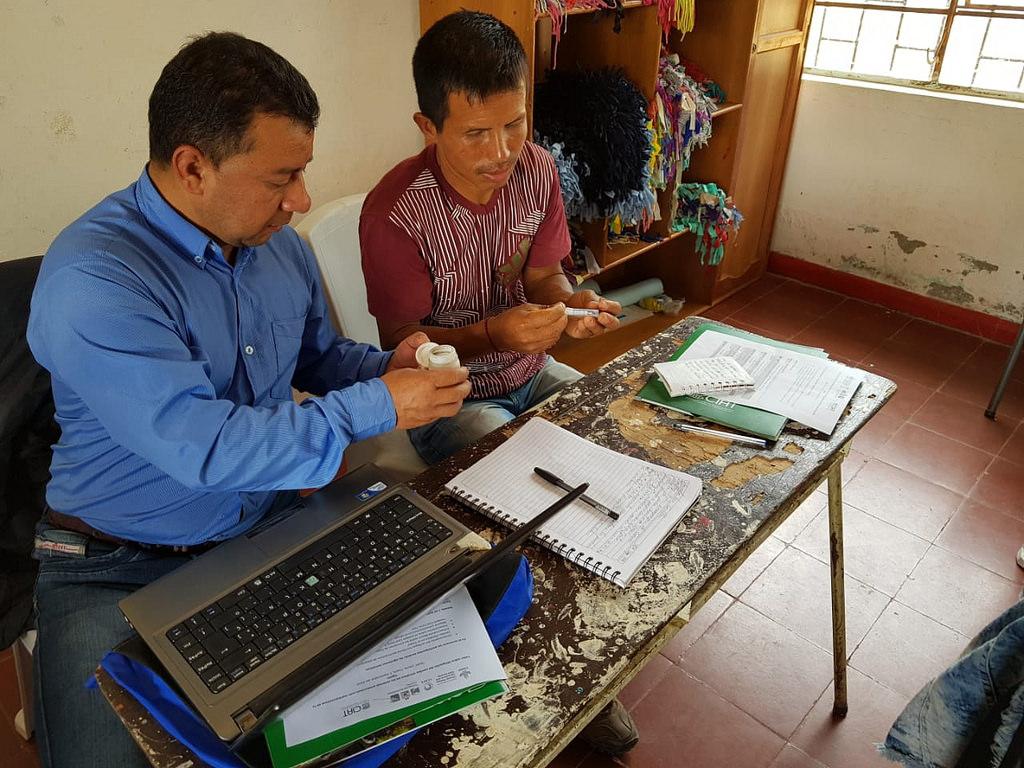
During the workshop farmers learn about the agronomic practices that had the most important environmental impact and different mitigation strategies. Photo: Ngonidzashe Chirinda (CIAT)
Listening to farmers
Towards the end of the workshop some points of reflection arose from the assistants involved:
Alejandra Usa Vidal, a producer of the municipality of Morales in Cauca, said that she hopes to continue working to raise awareness among producers in the region to promote more climate-smart practices. She emphasized how these practices may reduce GHG emissions stemming from their farms and how producers can contribute more to the development and conservation of the environment in this way.
Alexander Burbano Hoyos from Los Tendidos village shared that the experience they had with CIAT and CCAFS was very beneficial for everyone who attended since they learned that GHG emissions are produced in their daily activities and they generate a lot of pollution. He believes that the training was very rewarding and that this is a starting point to look for ways to mitigate the impacts as well as to gain knowledge on do's and don'ts. In his view the most important effect of the workshop is that their communities will benefit because they learned about what affects the environment.
John Mañunga, a young man from Los Cerrillos, said that he learned a lot because he now knows how to calculate the emissions produced not only by his farm but also by his village and community in general. He said that it is crucial to continue learning more about these topics so that they can share it with their community.
The next step will be to do a second workshop on the quantification of GHG emissions with the Cool Farm Tool, this time with technicians in the city of Popayán. Later, a practical workshop will be held in the field with farmers and technicians.
Ngonidzashe Chirinda is a Researcher for the Latin America Greenhouse Gas Mitigation Network (LAMNET). Sandra Patricia Loaiza Mera is a Research Assistant at CIAT. Andrea Castellanos Quintero is Science Officer for CCAFS. Lauren Sarruf Romero is Communications Officer for CCAFS.
